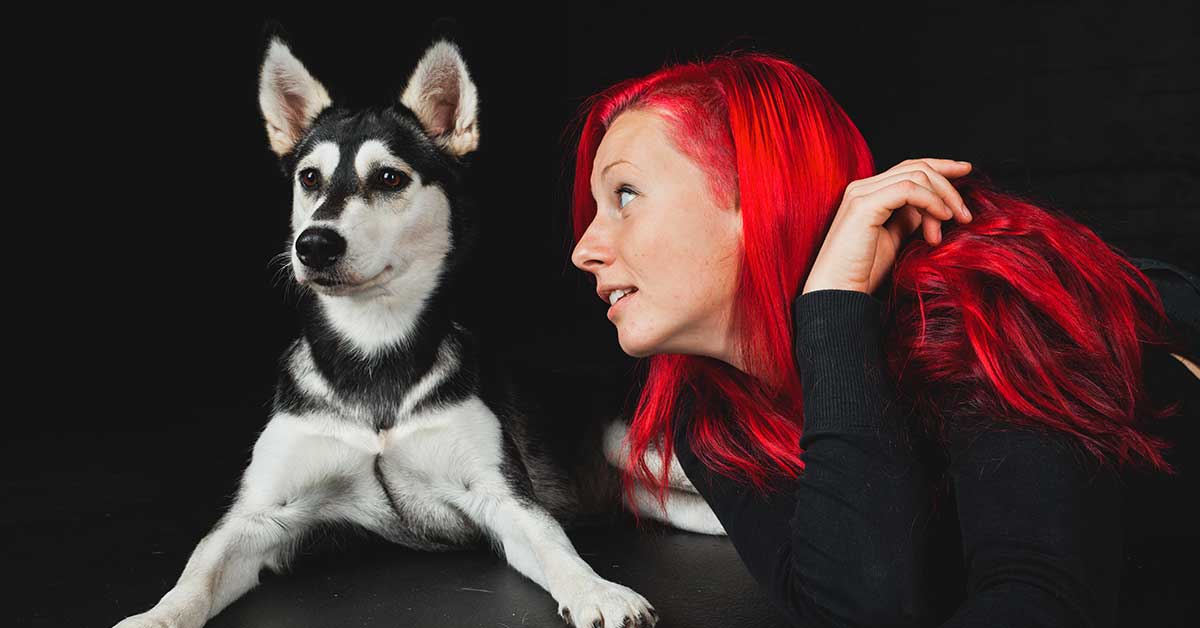In the mysterious realm of pet care, the terms “pet psychic” and “animal communicator” are often used interchangeably, yet they carry distinct connotations and methodologies. As a fervent animal lover and a skeptical yet open-minded pet owner, I once found myself at a crossroads: should I consult a pet psychic or an animal communicator for my cat’s peculiar nocturnal antics? This dilemma is not uncommon among pet owners seeking to understand the enigmatic behaviors of their furry companions.
The debate between pet psychics and animal communicators echoes a larger discourse on the nature of animal consciousness and the extent of human understanding. On one hand, pet psychics claim to tap into the mystical, often perceiving insights beyond the tangible. On the other, animal communicators emphasize a more intuitive, empathetic connection, grounded in understanding and interpreting animal behaviors. While both approaches offer intriguing perspectives, they cater to different needs and expectations. It’s essential to dissect these roles to make an informed decision that aligns with your pet’s needs.
What Is a Pet Psychic?
Pet psychics are often seen as the clairvoyants of the animal kingdom, wielding a unique ability to perceive beyond the ordinary. They claim to access the spiritual essence of pets, often describing a realm of communication that transcends verbal and physical interactions. Skeptics might scoff, but those who have consulted pet psychics often recount transformative experiences that defy conventional explanation.
One memorable encounter I had was with a pet psychic who claimed to connect with my cat’s spirit guide. Initially, I was apprehensive, my skepticism battling with curiosity. Yet, as the session progressed, the psychic revealed details about my cat’s preferences and anxieties that were eerily accurate. Whether it was a stroke of luck or genuine insight, the experience left me pondering the potential depths of animal consciousness.
Experts in the field suggest that pet psychics often rely on a combination of intuition, empathy, and energy reading. They might not possess supernatural abilities, but their heightened sensitivity allows them to perceive subtle cues that escape ordinary observation. This nuanced perception can enable them to offer unique perspectives on a pet’s emotional and mental state.
Insider Tip: According to renowned pet psychic Sonya Fitzpatrick, it’s crucial to approach these sessions with an open mind and a readiness to listen. Skepticism is natural, but receptivity can foster a more meaningful connection with your pet.
For those intrigued by the metaphysical, pet psychics offer a fascinating avenue to explore the unseen dimensions of pet behavior. However, it’s essential to approach such consultations with realistic expectations and an understanding of the subjective nature of psychic readings.
What Is an Animal Communicator?
Animal communicators, while often lumped with pet psychics, operate within a more grounded framework. They eschew the mystical for a more empirical approach, focusing on understanding animals through keen observation and emotional resonance. Unlike pet psychics, animal communicators prioritize building a bridge of empathy and understanding, interpreting the non-verbal signals and emotional cues that animals naturally emit.
When I consulted an animal communicator for my cat’s puzzling behaviors, the experience was markedly different from that with a pet psychic. The communicator focused on my cat’s body language, vocalizations, and even her routine patterns, piecing together a narrative that aligned with behavioral psychology. This approach was less about spiritual insight and more about honing into the subtle dynamics of animal behavior.
Animal communicators emphasize the importance of active listening and empathy, often guiding pet owners in fostering stronger connections with their pets. Their methodology is rooted in understanding the language of animals, which often transcends words and relies on shared emotional experiences.
Insider Tip: As advised by animal behaviorist Dr. Patricia McConnell, when seeking an animal communicator, look for those who integrate scientific understanding with intuitive empathy. This balance can enhance the accuracy and depth of their insights.
For pet owners seeking clarity on their pets’ behaviors, animal communicators offer a practical and insightful approach. By focusing on the tangible aspects of animal communication, they provide valuable guidance that can improve the quality of life for both pets and their owners.
How to Find a Good Animal Communicator
Finding a reputable animal communicator can be a daunting task, especially in a field fraught with ambiguity and skepticism. As a pet owner who has ventured into this realm, I learned that the key lies in diligent research and trusting one’s instincts.
Start by seeking recommendations from trusted sources, such as veterinarians, fellow pet owners, or local pet communities. Personal referrals often carry weight, as they come from individuals who have firsthand experience with the communicator’s methods and effectiveness. Online reviews can also provide insights, but it’s essential to approach them with discernment, differentiating genuine testimonials from exaggerated claims.
When I was on the hunt for an animal communicator, I reached out to a local pet rescue group, which connected me with a communicator known for her compassionate approach and success in resolving behavioral issues. This personal endorsement gave me confidence in her abilities and set the stage for a positive experience.
Before committing to a session, consider interviewing potential communicators. Inquire about their background, experience, and approach to animal communication. A reputable communicator should be transparent about their methods and willing to address any concerns you may have. Trust your instincts during this process; a genuine connection and sense of comfort with the communicator can significantly impact the session’s outcome.
Insider Tip: According to animal communication expert Penelope Smith, a good communicator should empower pet owners, providing tools and insights that foster a deeper bond with their animals. Look for communicators who prioritize education and collaboration.
Ultimately, finding a good animal communicator is about aligning with someone whose philosophy and approach resonate with you and your pet’s needs. With patience and due diligence, you can discover a communicator who offers valuable insights and enhances your understanding of your pet.
What to Expect During a Session
Embarking on a session with an animal communicator can be both exciting and nerve-wracking, especially if it’s your first time. Understanding what to expect can demystify the process and help you approach the session with an open mind and realistic expectations.
Typically, sessions begin with an introduction where the communicator establishes a rapport with both the pet and the owner. This initial phase is crucial, as it sets the tone for the interaction and allows the communicator to gauge the pet’s comfort level. The communicator may ask questions about the pet’s history, behaviors, and any specific concerns you wish to address.
During the session, the communicator will observe the pet’s body language, vocalizations, and interactions. They may also engage in silent communication, tuning into the animal’s emotional state and energy. This process involves a blend of intuition, empathy, and behavioral analysis, allowing the communicator to interpret the pet’s needs and emotions.
In my experience with an animal communicator, the session was a dynamic exchange of insights and observations. The communicator noted subtle shifts in my cat’s posture and vocalizations, offering interpretations that resonated with my understanding of her behavior. This collaborative approach fostered a deeper connection and provided actionable insights to address my cat’s quirks.
Insider Tip: To maximize the benefits of a session, come prepared with specific questions or concerns. This focus can guide the communicator’s observations and ensure that the session addresses your priorities.
Sessions often conclude with a discussion of the communicator’s findings and recommendations. A good communicator will provide practical advice and strategies to enhance your pet’s well-being and strengthen your bond. By setting clear expectations and actively engaging in the process, you can derive meaningful insights that support your pet’s happiness and health.
What Can Animal Communication Help With?
Animal communication is a versatile tool that can address a wide range of issues, from behavioral quirks to emotional distress. While it may not replace traditional veterinary care or behavioral training, it offers complementary insights that can enhance your understanding of your pet’s needs and improve their quality of life.
Behavioral issues are a common focus of animal communication sessions. Whether it’s a cat’s incessant scratching or a dog’s sudden aggression, communicators can help identify underlying causes and suggest strategies to address these behaviors. By interpreting the animal’s perspective, communicators offer a unique vantage point that can inform and complement behavioral interventions.
In my case, consulting an animal communicator helped uncover the root of my cat’s anxiety-driven behaviors. Through the session, I learned that my cat’s nocturnal restlessness was linked to changes in her environment, prompting me to make adjustments that alleviated her stress and improved her behavior.
Animal communication can also support emotional well-being, helping pets navigate changes such as moving to a new home, the arrival of a new family member, or coping with the loss of a companion. Communicators can facilitate this transition by offering insights into the pet’s emotional state and suggesting ways to provide comfort and reassurance.
Insider Tip: As noted by animal communication expert Marta Williams, animal communication can be particularly beneficial for rescue animals with traumatic pasts. By understanding their experiences, communicators can help facilitate healing and integration into loving homes.
While animal communication is not a panacea, it offers valuable insights that can enhance your relationship with your pet and support their overall well-being. By harnessing the power of empathy and understanding, you can address your pet’s needs more effectively and foster a harmonious coexistence.
The Bottom Line
The debate between pet psychics and animal communicators is nuanced, reflecting broader questions about the nature of animal consciousness and the potential for human-animal connection. Both approaches offer unique perspectives that cater to different needs and preferences, enriching our understanding of the animal world.
In my journey as a pet owner, exploring these avenues has deepened my appreciation for the complexity and richness of animal communication. Whether through the mystical insights of a pet psychic or the empathetic understanding of an animal communicator, these interactions have enhanced my bond with my pets and informed my approach to their care.
Ultimately, the choice between a pet psychic and an animal communicator depends on your personal beliefs, your pet’s needs, and your goals for the consultation. By approaching these sessions with an open mind and a commitment to understanding, you can uncover valuable insights that support your pet’s happiness and well-being.
For more information on the differences between pet psychics and animal communicators, and to explore other related topics, visit our blog.
Sources
- Sonya Fitzpatrick – Pet Psychic Insights
- Dr. Patricia McConnell – Animal Behavior Insights
- Penelope Smith – Animal Communication Expert
- Marta Williams – Animal Communication and Healing
By understanding the unique roles of pet psychics and animal communicators, pet owners can make informed decisions that enhance their pets’ lives and deepen their connection with their animal companions.
Q & A
Who can benefit from a pet psychic’s insights on my cat’s behavior?
Pet owners seeking spiritual guidance on their cat’s quirks can benefit.
What are the main differences between pet psychics and behaviorists?
Pet psychics focus on spiritual connection, while behaviorists analyze actions.
How can I determine whether to consult a psychic or a behaviorist?
Consider your cat’s needs; seek a psychic for intuition, a behaviorist for training.
Can pet psychics really help with understanding my cat’s quirks?
Many owners find value in psychics, though results may vary based on belief.
What qualifications should I look for in a pet behaviorist?
Look for certifications, experience, and positive reviews from other clients.
How can I trust the effectiveness of a pet psychic’s advice?
Trust your instincts; seek testimonials and reviews from other pet owners.



